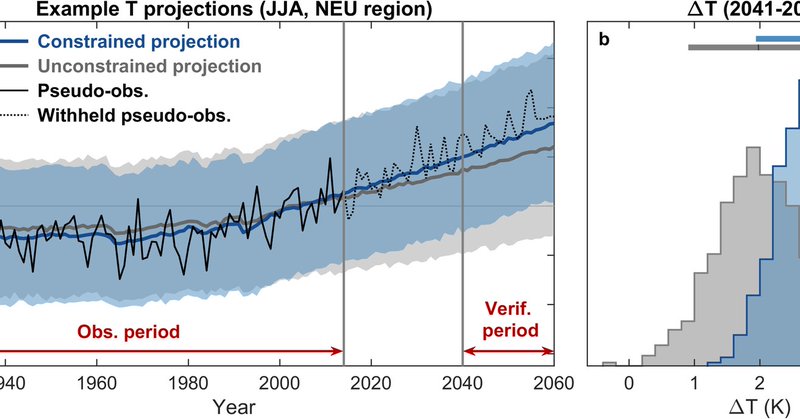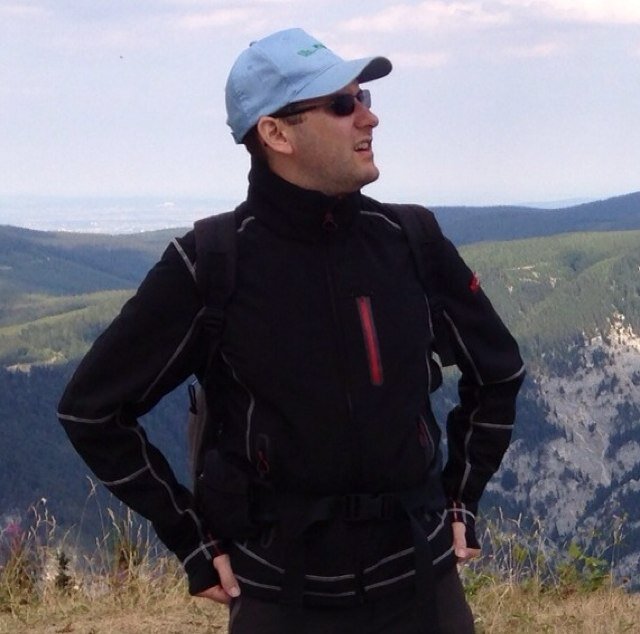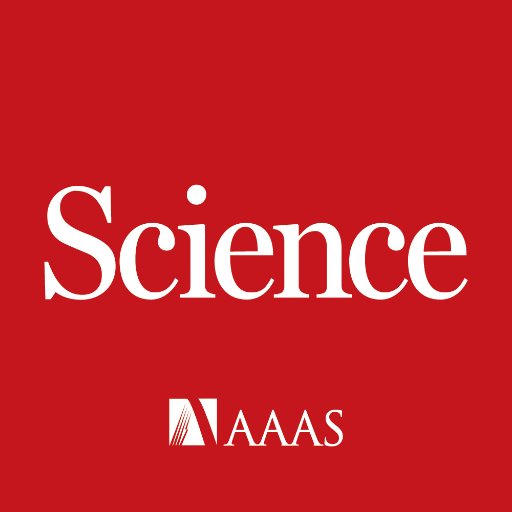
Lukas Brunner, inactive - [email protected]
@luki_brunner
Followers
461
Following
2K
Media
189
Statuses
613
No longer here. Find me on Bluesky: @lukasbrunner.bsky.social
Vienna, Austria
Joined April 2015
🚨New paper in @NatureComms 🚨 We show that relative temperature extremes (TX90p) as used in many studies can be biased by as much as 50%! The bias arises from the use of too long seasonal windows and can easily be corrected. Details below 1/🧵 https://t.co/0MQzANAk3Z
nature.com
Nature Communications - The authors show that a regularly used temperature extreme metric leads to a systematic underestimation of the expected extreme frequency of up to − 75%...
2
20
68
Want to work with us? We are looking for *Postdocs in Climate Modeling and Data Science at ETH Zurich* to work on global climate models, analysis of model results, the intersection of climate scenarios and impacts, or machine learning/data science. https://t.co/bBhnXVHlRg
2
19
38
I'm thrilled to join @JanaSillmann s group @unihh in May! Looking forward to many new and exciting projects and collaborations 🥳 Huge thanks to @aikovoigt and the whole team @univienna for a great time and all the things I could learn! Very sad to leave 🫶
3
1
28
(How) can we show the skill of constraining future projections? Model-as-truth tests have been used in the past but only for individual methods. We develop an extensive & consistent testing framework and apply it to five (!) constraining methods. 1/🧵 https://t.co/lSYTiTVLqN
nature.com
npj Climate and Atmospheric Science - Assessing observational constraints on future European climate in an out-of-sample framework
1
10
28
Many thanks to the entire team for this collaborative effort! In a sense, this study was a follow-up of earlier work comparing a similar set of methods but couldn't make statements about their skill. So it's really great to see this come together now! https://t.co/AzRPLBQA0v
🌦️ How will #ClimateChange affect future temperature and precipitation in #Europe? We have collected 8 different methods looking into this question! Check out our new @AMSJCLi paper for a comparison and discussion 👇 https://t.co/JSb90qVZUm 1/🧵
0
0
1
Finally, we also apply all five methods and the multi-method to real observations and use them to constrain projections of European temperature changes between 1995-2014 and 2041-2060 👇👇 6/🧵
1
0
2
For precipitation and in winter method skill is much more of a mixed bag with only few consistent skill improvements compared to the unconstrained case. Constraining precipitation on a regional scale should therefore be treated with some caution. 👉 https://t.co/nyENqC9UXr 5/🧵
1
0
1
Main takeaway: for summer temperature changes the methods are very consistent even though they base their constraints on quite diverse information. Combining them into a multi-method constraint that can draw on all available information also shows quite some promise. 4/🧵
1
0
1
It was quite an effort to achieve a consistent comparison of five very different constraining methods using 125 (!!) pseudo-observational datasets. Huge thanks to Chris O'Reilly @horkesley for leading this!!🙏 See figure to get an idea of the amount of data involved. 3/🧵
1
0
0
The idea is simple: provide each participating group with historical CMIP6 model runs, serving as pseudo-observations used to constrain CMIP5 projections. The constrained distributions are then compared against the withheld "truths" in the future. 2/🧵
1
0
1
(How) can we show the skill of constraining future projections? Model-as-truth tests have been used in the past but only for individual methods. We develop an extensive & consistent testing framework and apply it to five (!) constraining methods. 1/🧵 https://t.co/lSYTiTVLqN
nature.com
npj Climate and Atmospheric Science - Assessing observational constraints on future European climate in an out-of-sample framework
1
10
28
Und ich wurde mal wieder zum Meteorologen gemacht 🙈
0
0
0
Täglich an Hitzewellen und ihren Änderungen zu forschen macht es irgendwie abstrakt. Wenn ich dann darüber in der Zeitung lese wirds plötzlich wieder sehr real 🥵🥵🥵 (Studie von Philipp Aglas-Leitner in prep) https://t.co/MEhda7Tx42
derstandard.at
Fachleute warnen vor längeren, intensiveren Hitzephasen in den kommenden Jahrzehnten, die sogar sechs Monate anhalten könnten
1
0
0
Join us tomorrow for our session on global and regional climate modelling and model selection at #EGU24! https://t.co/vwyQyaSrOj
0
0
4
Oh. wow. #EGU24
📢 Find relevant talks and posters at #EGU24 📢 Are you tired of feeling FOMO at EGU? Today we introduce our new web app that simplifies the hunt for relevant presentations at #EGU24 using state-of-the-art natural language processing! (Thread) https://t.co/bXccReEz2m
5
0
1
If you're at #EGU24 you can hear me talk about this paper on Wednesday afternoon in session CL2.3: https://t.co/s7kujQLyA2 I've also uploaded the presentation as supplementary material if you can't join the talk. Also, feel free to reach out if there are any questions.
🚨New paper in @NatureComms 🚨 We show that relative temperature extremes (TX90p) as used in many studies can be biased by as much as 50%! The bias arises from the use of too long seasonal windows and can easily be corrected. Details below 1/🧵 https://t.co/0MQzANAk3Z
5
1
8
Heute wird der 24. Klimatag des @_CCCA_ an der @tu_wien eröffnet. Ich freue mich auf den fachlichen Austausch, auf die vielen neuen Forschungsergebnisse und auf neue überraschende Erkenntnisse. #WissenSchaftKlimaschutz
#Klimatag
#Klimakrise
#Klimawandel
3
7
48
🚨New paper in @NatureComms 🚨 We show that relative temperature extremes (TX90p) as used in many studies can be biased by as much as 50%! The bias arises from the use of too long seasonal windows and can easily be corrected. Details below 1/🧵 https://t.co/0MQzANAk3Z
nature.com
Nature Communications - The authors show that a regularly used temperature extreme metric leads to a systematic underestimation of the expected extreme frequency of up to − 75%...
2
20
68
Stark warning of things to come if we don't act more quickly and decisively on the climate crisis! Although it probably doesn't change much it'd be good not to use a 15-day running seasonal window w/o correction as we recently showed in @NatureComms 👇 https://t.co/O3edQabBab
Heatwaves are traveling more slowly now than they did 40 years ago, adding to their severity, according to a @ScienceAdvances analysis of observational data from 1979 to 2020. https://t.co/9gUSKRYvUY
5
1
7
We are looking for a senior scientist to join our Climate Dynamics and Modeling team @univienna. The position can lead to permanent employment and offers ample opportunities to develop an independent research program. Application deadline: April 15. https://t.co/YfiTi7vWwC
jobs.univie.ac.at
Senior Scientist in Climate Dynamics and Modeling
1
14
29
Really great opportunity to get out of your bubble, to have a ton of interesting conversations, to discuss the future of Europe and the world, and to enjoy the Tyrolean mountains of course 😊
Apply for a scholarship and join us in this year's Forum Alpbach! You won't regret it! More infos on our Website! @FANofAlpbach @forumalpbach
0
0
1









